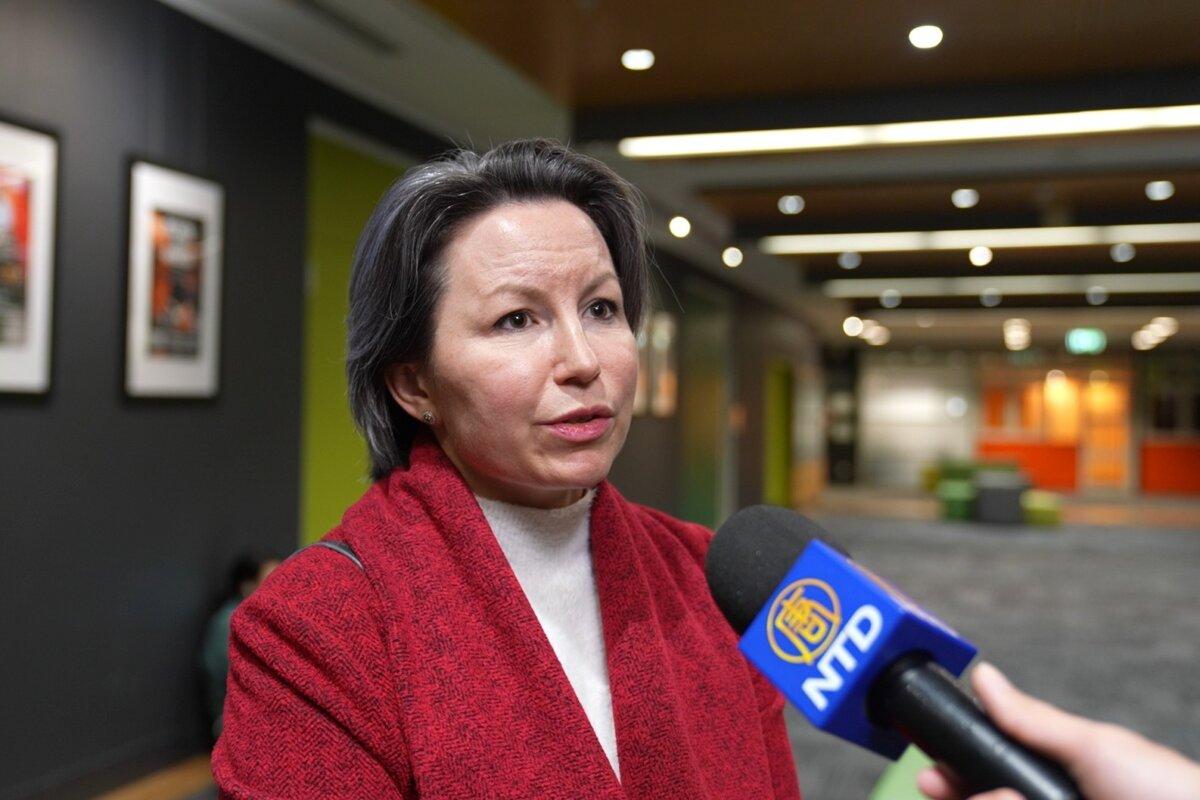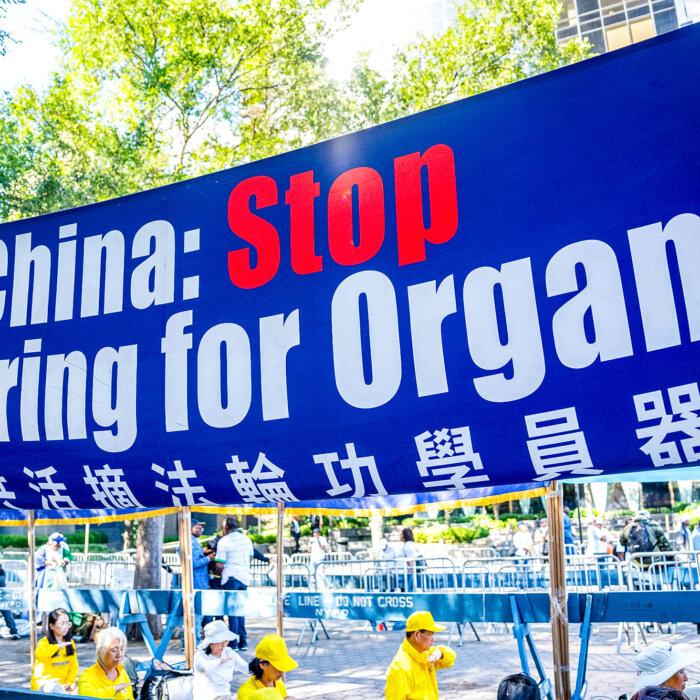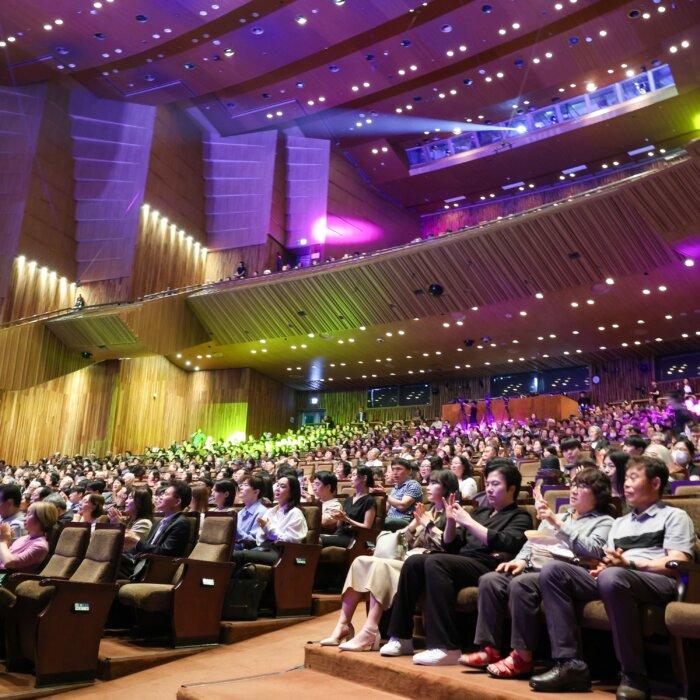Australians were left shaken when confronted by the disturbing reality of a state-run forced organ harvesting operation targeting innocent individuals.
The award-winning documentary “State Organs: Unmasking Transplant Abuse in China” was screened at Pioneer Theatre in Castle Hill, Sydney, on June 11.The screening received a strong response, with multiple audience members saying they were shocked.
Sydney resident Leila El-khoury said there were no words to describe what she saw.
“I need to [let] my kids to see this movie, so they feel how privileged they are living here in Australia,” she told NTD, the sister media of The Epoch Times.

Labor Councillor Jane Grevtseva of the Hills Shire Council described the film as “very, very powerful.”
“I recommend everyone should watch it. [It’s] very devastating and very sad that Chinese people experience that,” she told NTD.
Grevtseva, who is from a former USSR nation, said she understands how such atrocities can happen and that Australia should do more to help.
“Sanctions may not always work, but this is a first step, which I believe very good step, and can bring some results,” she said.

Nothing Preventing Aussie Complicity
In 2019, an independent people’s panel in London called the China Tribunal found that the Chinese Communist regime had been harvesting organs from prisoners of conscience for years “on a significant scale,” with practitioners of the Falun Gong being the primary victims.Falun Gong, also known as Falun Dafa, is a spiritual practice consisting of meditative exercises and teachings based on the principles of truthfulness, compassion, and tolerance.
It was introduced to the public by Mr. Li Hongzhi in 1992 and attracted at least 70 million followers in China before the former Chinese Communist Party (CCP) leader Jiang Zemin launched a persecution campaign against the faith group in 1999.
According to statistics collected by the Falun Dafa Information Center, millions have been detained inside prisons, labour camps, and other facilities; more than 100,000 have been tortured or abused in custody; and thousands have died from torture while detained.
The ongoing persecution stems from Falun Gong’s broad public support and its independence from the communist regime’s authority.
Panel speaker Dr. Sophia Bryskine, a representative of Doctors Against Forced Organ Harvesting, pointed out that Australia does not yet have any laws forbidding its citizens from travelling to China to receive organs of unclear origin.
“It’s not illegal [to do so], so anyone can travel overseas, and we don’t have any laws in Australia currently prohibiting transplant tourism,” she said.
Bryskine explained that there had been previous legislation efforts to criminalise transplant tourism when the sources were considered unethical, but they did not reach the final stage due to opposition.
The Migration Amendment (Overseas Organ Transplant Disclosure and Other Measures) Bill 2024 was passed in the Senate in August 2024, but lapsed at dissolution in the House in March.
“Also, our Criminal Code, currently at the federal level, does not include transplant tourism as a criminal offence. That’s something that we have been raising for a number of years ... Currently, no, it’s not illegal, unfortunately,” Bryskine said.
John Deller, a committee member of the Falun Dafa Association of Australia, urged the Australian government to do more on the issue.
“Because avoiding it and not doing anything is becoming complicit,” he said.
‘It’s a Communism Problem’
One audience member asked the panel speakers about the loss of humanity of everyone involved in forced organ harvesting.“I don’t understand how one person can dictate something and then a whole group of other people, like doctors and nurses, and they all get into it,” the audience member said.
Deller answered that, “It helps to understand something about communism. It’s not the Chinese people’s fault. It’s not China, the country. It’s a communism problem, and that’s what people have to remember,” referring to a quote from human rights lawyer David Matas in the film.
When asked how Australians can help bring such films further into the mainstream to reach a wider audience, Deller said that SBS did show a film related to organ harvesting some years ago.
“But generally, the media is sadly influenced by the impact of the CCP and its agents and its funding and its money,” he said, referring to the CCP’s interference in State Organs’ recent screenings in South Korea.
The documentary, directed by Peabody Award-winner Raymond Zhang, won Best Direction and Best Musical Score in the feature-length documentary category at the 2023 Leo Awards; Best Human Rights Documentary at the 2024 Manhattan Film Festival; an Award of Excellence at the 2024 Accolate; and was recently recognized for “Outstanding Achievement” at the 2024 Humanitarian Award by the Accolade Global Film Competition, a global virtual film competition established in 2003.
Frank Fang and NTD reporter Philippe Wang contributed to this report.






